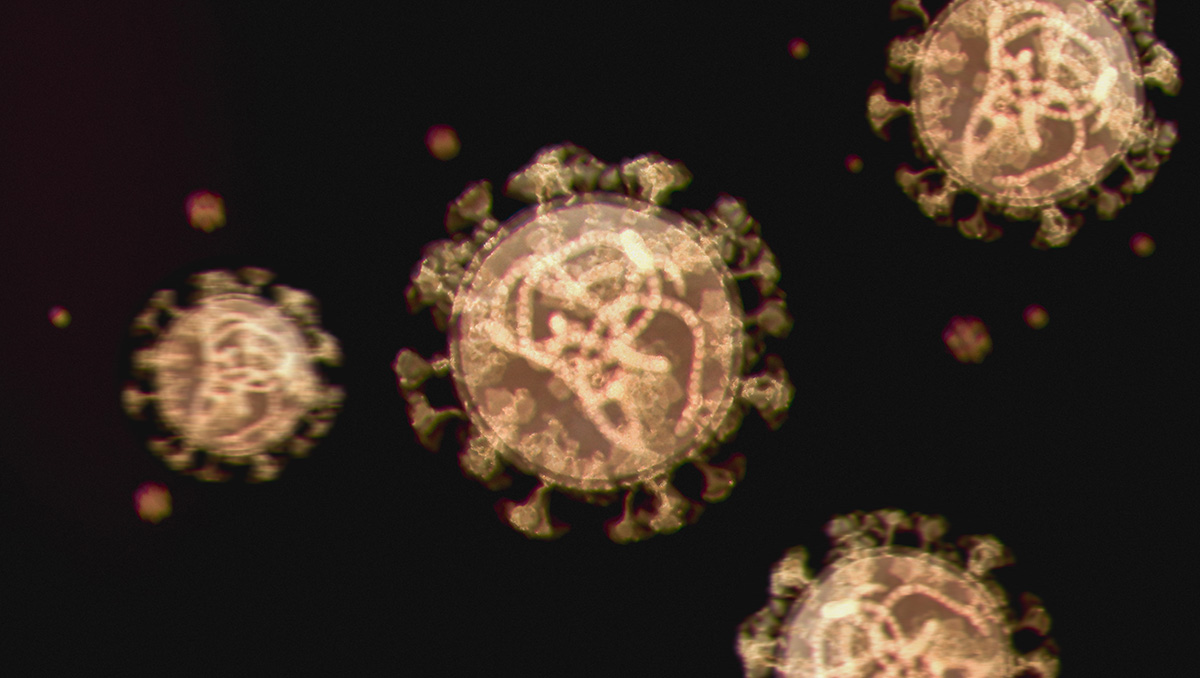Omicron and Beta variants evade antibodies elicited by vaccines and previous infections, but boosters help
Pregnancy also contributes to a reduced COVID-19 antibody response
ROCKVILLE, MD and LA JOLLA, CA—January 13, 2022—Scientists from the J. Craig Venter Institute, along with collaborators, have shown that people who were infected with the original D614 severe acute respiratory syndrome coronavirus 2 (SARS-CoV-2), as well as those vaccinated with either the Pfizer-BioNTech or Moderna mRNA COVID-19 vaccine, have significantly reduced protection against the Beta and Omicron variants as compared to the original D614 virus and Delta variant.
While a third immunization with the Pfizer-BioNTech mRNA vaccine is shown to increase the magnitude of the antibody response to these same variants, Omicron remains the most resistant to neutralization. The study also found that pregnancy appears to reduce protection against D614, Beta, Delta, and Omicron variants for both previously infected and mRNA-vaccinated individuals.
JCVI Assistant Professor Gene Tan, Ph.D., a senior author on the paper stated, “Although current vaccines have largely been effective against past variants, the number of mutations found on the Omicron spike protein appear to diminish the protection conferred by pre-existing immunity. The Omicron variant harbors a striking 59 amino acid substitutions throughout its genome relative to D614, thirty-seven of which are within the spike protein, the target of neutralizing antibody responses against this virus.”

As neutralizing antibodies are the major correlate of protection against COVID-19, this degree of mutational change raises questions about the effectiveness of neutralizing antibodies that were elicited by infection with a D614 infection or by current mRNA vaccines which encode the D614 spike protein.
Using plasma samples at multiple timepoints from three cohorts, the neutralizing activity of the antibody responses were measured against the original SARS-CoV-2 (D614) and three variants of concern (Beta, Delta, and Omicron) using a pseudotyped virus. Rather than work with the actual virus, which requires a high biosafety level laboratory, JCVI scientists modified a vesicular stomatitis virus (VSV) to express the spike protein of SARS-CoV-2, which allowed them to rapidly perform the assays in a lower biosafety level environment.
Relative susceptibility of the spike proteins in the variants of concern to neutralizing antibodies were studied in three cohorts of previously infected or mRNA-vaccinated study participants. The cohorts consisted of 1) a cohort of unvaccinated participants who became infected, 2) a cohort of pregnant participants who received two doses of the Pfizer-BioNTech or Moderna mRNA vaccines during pregnancy, and 3) a cohort of healthcare workers who received three doses of the Pfizer-BioNTech vaccine.
Although mRNA vaccines have been extremely successful at inducing potent neutralizing antibody responses, their effectiveness depends in large part on the degree of antigenic drift in circulating SARS-CoV-2 variants. As SARS-CoV-2 evolves under selective pressure, vaccines that rely solely on eliciting responses against the spike protein will eventually require updating. Supplementing spike protein-based vaccines with other more conserved viral antigens would likely elicit greater breadth of immunity, activate other components of the immune system, and likely enable less frequent updating of SARS-CoV-2 vaccines.
Researchers from Stanford University, University of California San Francisco, University of Maryland School of Medicine, Chan Zuckerberg Biohub, and University of California San Diego also contributed to this study.
The complete study, “Antibodies elicited by SARS-CoV-2 infection or mRNA vaccines have reduced neutralizing activity against Beta and Omicron pseudoviruses,” may be found in the journal Science Translational Medicine.
About J. Craig Venter Institute
The J. Craig Venter Institute (JCVI) is a not-for-profit research institute in Rockville, Maryland and La Jolla, California. dedicated to the advancement of the science of genomics; the understanding of its implications for society; and communication of those results to the scientific community, the public, and policymakers. Founded by J. Craig Venter, Ph.D., the JCVI is home to approximately 150 scientists and staff with expertise in human and evolutionary biology, genetics, bioinformatics/informatics, information technology, high-throughput DNA sequencing, genomic and environmental policy research, and public education in science and science policy. The JCVI is a 501(c)(3) organization. For additional information, please visit www.JCVI.org.
Media Contact
Matthew LaPointe, mlapointe@jcvi.org, 301-795-7918